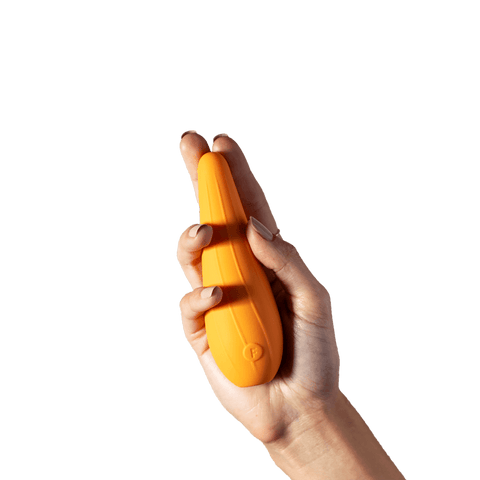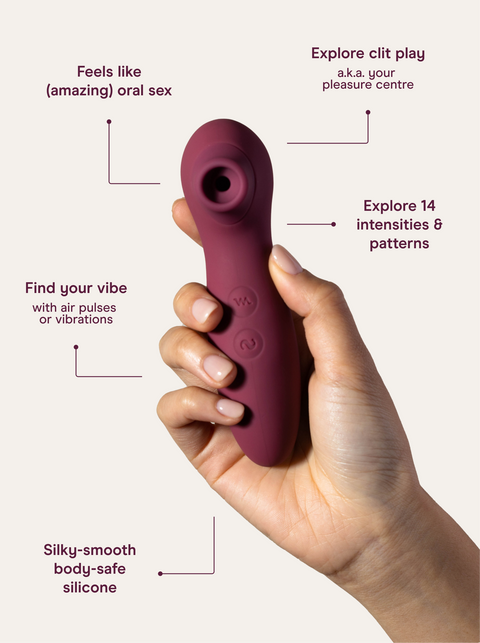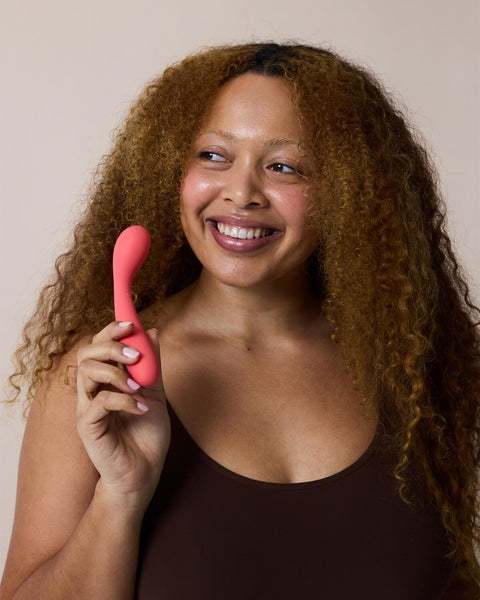Anorgasmia often remains shrouded in silence, despite how prevalent it can be.
Anorgasmia refers to the inability to achieve orgasm despite adequate sexual stimulation. Normal’s in-house sex and relationship practitioner Georgia refers to it as Preorgasmia in session with clients, she says; “I try not to use the term Anorgasmia, this essentially means you can’t or won’t orgasm and I find my clients have googled the term and they become hyper fixated on being the percentage of people who will never climax. I like the term ‘pre-orgasmia’ as I’m reinforcing the idea that - yeah sure you haven’t experienced orgasm yet, but there’s SO much you can do to explore pleasure in your body - so you’re just pre an orgasmic experience’.
So in this article you’ll notice we’ll use that language too when relevant.
While it may be frustrating, the good news is that it’s more common than you think—and there are a range of treatments available.
Remember, while pre-orgasmia can present challenges, it's often a condition that can be addressed with the right approach.
Basically:
- Anorgasmia refers to the persistent inability to reach orgasm, despite adequate stimulation
- Sex therapists will often use the term ‘preorgasmia’ to reinforce the idea that clients are not broken and there’s a lot they can do to feel more pleasure
- It can be caused by a variety of factors including physical and mental health, and lifestyle factors
- Although pre-orgasmia can feel challenging, it is treatable
Pre-orgasmia can be categorised into two primary types: primary and secondary. Primary pre-orgasmia refers to individuals who have never experienced an orgasm despite adequate stimulation, while secondary pre-orgasmia is characterised by a sudden or gradual difficulty in reaching orgasm despite having had successful experiences in the past.
It’s also important to clarify that pre-orgasmia refers to a persistent inability to orgasm, rather than an occasional or once-off lack of orgasm. It’s completely normal to occasionally not be able to climax, but if you find that you’re rarely if ever able to reach orgasm, it may be a sign of pre-orgasmia.
It's essential to realise that pre-orgasmia is not uncommon and can be caused by a variety of factors, including psychological, physiological, and relational issues. Opening up about this concern with your partner can lead to better understanding, emotional closeness, and collaborative efforts to address the issue.
Bringing up the topic of pre-orgasmia with your partner may seem daunting, but it's a crucial step towards maintaining open communication and intimacy. Here are some tips to guide your conversation:
- Choose the right setting. Find a comfortable, private space where you both can speak openly without fear of interruption or judgement.
- Be honest. Approach the topic with honesty and empathy. Use ‘I…’ statements to express your feelings and experiences, which can help avoid blame or misunderstanding. For example, “I often find it really difficult to orgasm…” may help your partner to feel more receptive than, “You never make me come…”.
- Share some information. If you’ve done some research, take time to share what you’ve learned and explain how you identify with the information. This can help inform your partner and also make sure that they understand the seriousness of the issue.
- Move forward together. Ask for your partner’s help in moving forward. You might want to invite them to a medical appointment you have planned, or enlist them in doing some further research into pre-orgasmia and its causes. Ideally, your partner will be supportive of the way you feel and eager to offer their help!
Seeking professional guidance is crucial if pre-orgasmia persists. Medical professionals are equipped to diagnose the underlying causes and recommend appropriate treatments. Here's how to approach this conversation:
- Choose a trusted professional. Consult a healthcare provider whom you trust and feel comfortable discussing intimate concerns with. If you don’t feel comfortable discussing the topic with your current GP, ask your friends and social networks for a recommendation.
- Provide comprehensive information. Be prepared to share information about your medical history, any medications you're taking, and details about your sexual experiences. This information can aid the diagnosis.
- Ask questions. Don't hesitate to ask questions about potential causes, treatments, and the likelihood of improvement. Being well-informed will help you make educated decisions about your health. It may help to write a list of your questions before the appointment so you don’t forget anything in the heat of the moment.
- Advocate for yourself. If your doctor dismisses your concerns, consider seeking a second opinion. pre-orgasmia is a legitimate medical issue that deserves attention and consideration.
The good news is there’s so much you can do! These approaches and exercises can be tailored to address the underlying causes, which might involve a combination of psychological, medical, and lifestyle interventions.
- Sex coaching or therapy. A qualified sex coach or therapist can help identify any psychological factors contributing to pre-orgasmia, and provide guidance on techniques to alleviate them.
- Medical interventions. Depending on the cause, your doctor might suggest medication adjustments, hormone therapy, or other medical interventions to help overcome pre-orgasmia.
- Lifestyle changes. Sometimes lifestyle factors like stress, fatigue, or less-than-healthy habits can contribute to pre-orgasmia. Making positive changes in these areas can have a significant impact.
- Communication and intimacy exercises. Engaging in open conversations with your partner and trying intimacy-building exercises can help reduce any pressure in the bedroom and create a more relaxed environment.
Navigating the complexities of pre-orgasmia requires courage, empathy, and a proactive attitude. By discussing the issue openly with your partner and seeking professional help, you're taking a positive step toward finding a solution.
Remember, pre-orgasmia is a challenge that many individuals and couples have successfully overcome. With patience, understanding, and the right approach, you can work towards a fulfilling and satisfying sexual experience.
For practical guides and masturbation practices - check out our free online video course The Modern Guide to Sex.





































